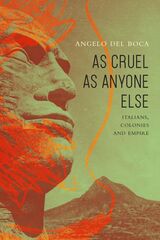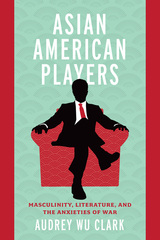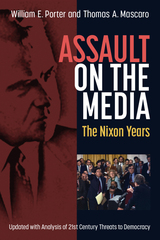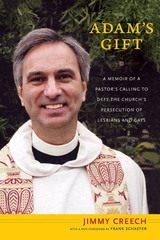
Adam’s visit prompted Creech to re-evaluate his belief that homosexuality was a sin, and to research the scriptural basis for the church’s position. He determined that the church was mistaken, that scriptural translations and interpretations had been botched and dangerously distorted. As a Christian, Creech came to believe that discriminating against lesbian, gay, bisexual, and transgender people was morally wrong. This understanding compelled him to perform same-gender commitment ceremonies, which conflicted with church directives. Creech was tried twice by The United Methodist Church, and, after the second trial, his ordination credentials were revoked. Adam’s Gift is a moving story and an important chapter in the unfinished struggle for lesbian, gay, bisexual, and transgender civil and human rights.
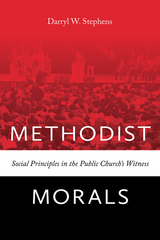
Methodist Morals offers keen insight into the public church, interpreting the United Methodist Social Principles as a dynamic discourse about morality and human rights in light of faith. Revised every four years by the General Conference of the United Methodist Church, the Social Principles exposes the moral deliberations of this distinctly American and increasingly “worldwide” church as it struggles to achieve community across multiple languages and cultures. Perhaps no other document provides as rich a depiction of Protestants participating in the moral argument of public life.
This is the first full-length study of Methodist social teachings in over fifty years. Examining official Methodist teachings from institutional, historical, and cross-cultural perspectives, Darryl Stephens provides a rich analysis of this case study of Protestant social witness, drawing on his expertise in church polity, Methodist history, and Christian social ethics. A wide range of comparisons— with documents of the United Nations, with moral debate in Germany and Zimbabwe, and with historical Methodist statements of social witness—shows the Social Principles to be a unique form of social witness. The issues of war, abortion, human sexuality, and marriage illustrate the messiness of democratic deliberation in an ecclesial context and the evolution of a people ever concerned with the sin of “worldliness” even as they become more attuned to transforming social structures. Stephens also contrasts this conception of the public church with the ecclesiologies of prominent Methodist ethicists Stanley Hauerwas and Paul Ramsey.
Intended for students of Methodism, ecumenical church leaders, and scholars of Christian social ethics and contemporary US mainline religion, this work reveals the challenges to and possibilities for achieving moral community in an increasingly global and diverse world.
DARRYL W. STEPHENS, director of United Methodist studies at Lancaster Theological Seminary, is former assistant general secretary for advocacy and sexual ethics in the UMC’s General Commission on the Status and Role of Women. He is the coeditor of Professional Sexual Ethics: A Holistic Ministry Approach.
READERS
Browse our collection.
PUBLISHERS
See BiblioVault's publisher services.
STUDENT SERVICES
Files for college accessibility offices.
UChicago Accessibility Resources
home | accessibility | search | about | contact us
BiblioVault ® 2001 - 2024
The University of Chicago Press



